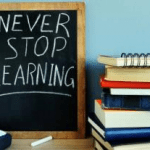As the Advocacy Coordinator at EU-CORD, I constantly learn and discover how thematically rich our members’ programmes are. Currently, I am working on a new education initiative that seeks to showcase our expertise as a network and ensure that we can be part of EU processes that prioritise quality education globally. Working in this initiative has forced me to consider my privilege. I was educated at some of the best schools in my home country Zambia before a tertiary journey that spanned three different countries culminating in a PhD. As a citizen living without disabilities, the importance of inclusive education was never high on my agenda. Neither did I consider how the intersections of one’s identity can determine whether you are educated or what quality of education or future skills training you receive.
Currently, low- and middle-income countries, particularly in the Sub-Saharan region, are combating several challenges to securing access to quality education. These include shortcomings in national regulations and strategies, a lack of trained professionals and adequate funding, the absence of the necessary infrastructure, equipment, facilities and learning materials, a lack of stability and security, and inequalities. But, there are additional challenges scholars have faced since the COVID-19 pandemic. One of our members, Stromme, conducted the “New Normal Community Mapping” in the West Africa Sahel region (Burkina Faso, Niger, Mali), East Africa (South Sudan, Uganda, Tanzania, and Kenya), and to some extent in Asia (Nepal and Bangladesh). This detailed study found that, among others, the pandemic led to substantial learning gaps, increased the risk of dropping out, and resulted in the loss of teachers, with the risk of a “lost generation” in education as a consequence.
The climate crisis compounds this situation, and the intersections of the climate crisis and the consequences of the pandemic on education are devastating! Inequalities have been further exacerbated, particularly for vulnerable populations, such as those under the poverty level in urban and rural settlements, children or adolescents with disabilities, young girls or boys, or minority and migrant groups. Further, extreme weather events are particularly harmful for young children. They increase the likelihood of internal displacement, food insecurity, and conflict, including age- and gender-based violence, psychosocial harm, and damage to school buildings and transport routes.
Today, one can not think about education without considering the cross-cutting challenges that scholars face. The Sustainable Development Goal Indicator 4.7 recognises this because it advocates for all learners to acquire the knowledge and skills needed to promote sustainable development, including, among others, through education for sustainable development and sustainable lifestyles. Education is not only about an individual’s development and knowledge for which to succeed in life, but more than ever, it should be about gaining knowledge that can contribute to sustainable solutions for the plethora of obstacles new generations are facing. Education is also about giving scholars a voice, and not all scholars are children. There are youth involved in TVET programmes, and adults are involved in literacy programmes- these too are worthy of concern.
Yet discussions about the various aspects of sustainable development are often held in silos. We can not separate education from the climate crisis when the former is massively affected by the latter. We can not speak of gender equality when girls are forced to drop out of school and into early marriages due to the COVID19 pandemic or fall victim to sexual assault due to climate-related displacement. Promoting a culture of peace and non-violence is futile if differently-abled children are excluded from schools or banished altogether because of the stigma related to leprosy or other diseases.
I believe that now is the time to stop framing children and youth only as recipients of our benevolence, victims of climate disasters or inheritors of the future state of the earth. Instead, children and youth should be treated as legitimate and capable actors. This means ensuring a holistic mindset when crafting education initiatives. I submit that a holistic approach would require three things: first, acknowledging the intersections of the cross-cutting challenges scholars face in middle and low-income countries. Second, an understanding that while the digitalisation of the education agenda is essential and convenient in times of a pandemic, it can also be exclusionary because it is premised on the availability of tools and data to participate digitally. Finally, a holistic approach requires decolonising our conception of what is best. Instead of focusing on those least responsible for climate change, we should be putting more pressure on those responsible for it. Only then will we be able to encourage future generations to have hope that they can not only survive these multiple crises- but they can thrive.





